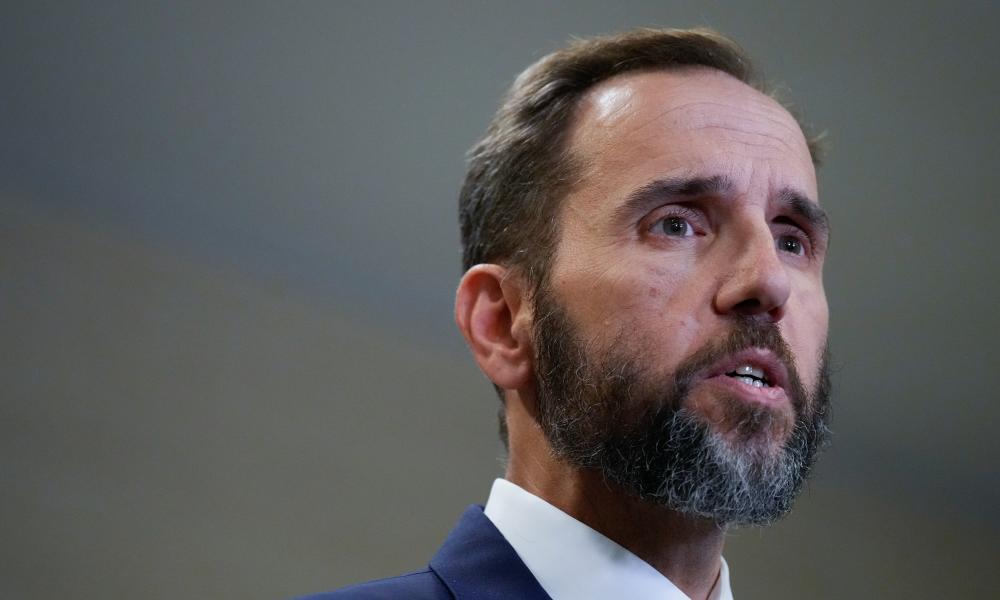In a tense political climate as the 2024 presidential election approaches, South Carolina Senator Lindsey Graham has issued a striking warning to Special Counsel Jack Smith on social media, signaling strong support for Donald Trump during a crucial moment. Just before Trump delivered a victory speech in West Palm Beach, Florida, Graham addressed Smith directly on X, implying that the charges against Trump were politically motivated and likely to falter. He noted that the Supreme Court had rejected aspects of Smith’s investigations, asserting that the American public is growing weary of what he termed “lawfare.” Graham urged Smith to reconsider his legal pursuits against Trump, calling for an end to the cases and suggesting that the American people deserve a “refund” for the political turmoil caused by these investigations.
The investigations led by Jack Smith began when U.S. Attorney General Merrick Garland appointed him in November 2022 to ascertain whether Trump should face criminal charges linked to the alleged mishandling of national security documents and his actions surrounding the January 6 Capitol riot. Trump was subsequently charged in two separate cases: one related to the retention of classified materials at his Mar-a-Lago estate and another concerning efforts to overturn the 2020 election’s results. As the election draws closer, Trump’s legal team has sought to delay proceedings, resisting any momentum Smith has gained—and a pivotal Supreme Court ruling in July that granted former presidents broad immunity seemed to bolster their strategy.
In the most recent developments leading up to the election, Smith laid out his case against Trump in a detailed 165-page unsealed document, arguing against the former president’s claims of immunity. Prosecutors contended that Trump had resorted to criminal actions in an attempt to maintain power after his electoral defeat, explicitly asserting that immunity should not shield him from prosecution. This legal battle, part of a broader array of challenges Trump faces, exemplifies the increasingly contentious intersection of legal battles and electoral politics in the United States, particularly as media attention intensifies around both Trump’s campaign and his legal troubles.
Simultaneously, Trump is navigating the implications of being a convicted criminal while campaigning for the presidency. In May, he was found guilty of 34 counts involving falsified business records in connection with a hush-money payment to adult film star Stormy Daniels. Although sentencing for this case was initially set for September, it has since been postponed to November at Trump’s request, raising questions about the potential impacts his legal situations may have on his political aspirations. This unprecedented scenario—potentially becoming the first convicted criminal to assume the presidency—has heightened debate about the validity of his candidacy and the ramifications for governance and national security.
Trump’s public communications indicate a resolve to confront the challenges posed by Smith’s investigations if re-elected. He has openly discussed firing Smith, reiterating this sentiment in interviews and highlighting a commitment to placing himself back in a position of authority. In a conversation with conservative podcast host Hugh Hewitt, Trump remarked on how simple it would be to terminate Smith’s role, reflecting a confrontational approach to his legal issues that seems designed to resonate with his base. Such remarks emphasize the polarization surrounding Trump, as his appeals to law-and-order voters and discussion of retribution against perceived political adversaries gain traction in the lead-up to a closely watched election.
As we proceed into the final months before the election, the interplay between Trump’s legal struggles and his political maneuvers will likely shape voter perceptions and party dynamics. With both Graham’s comments and Trump’s rising campaign fervor, the situation raises fundamental questions about accountability, justice, and the extent to which the legal system can influence or be influenced by electoral politics. The pivotal role of the judiciary in American democracy will be under scrutiny as Trump grapples with his considerable legal burdens while simultaneously presenting himself as a viable candidate for the highest office in the land. This dynamic serves as a reminder of the turbulent relationship between law and politics in an age marked by deep divisions and contentious narratives that could define the outcome of the upcoming election.

